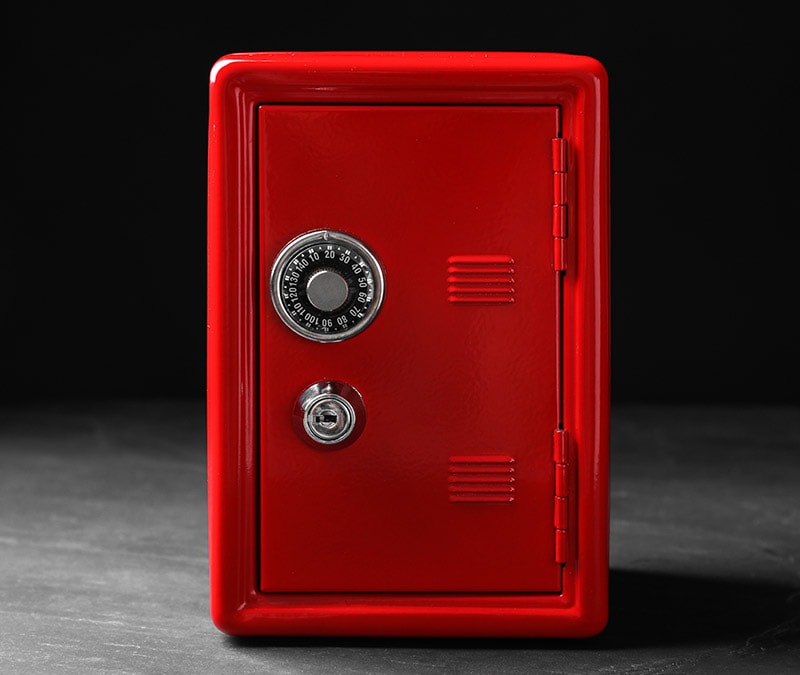How to freeze your credit report after identity theft
A credit freeze allows you to restrict access to your credit report. It can help if you’ve been a victim of identity theft.

Freezing your credit report is sometimes necessary. It can help prevent identity thieves from opening new lines of credit and other accounts in your name. It’s often recommended when you’re dealing with the ramifications of identity theft.
A credit freeze allows you to restrict access to your credit report. When you freeze your credit file, you prevent potential creditors from accessing certain financial and personal information. Creditors are unlikely to let you — or an identity thief — open, say, a new credit card, if they can’t access your credit report. That’s because they won’t be able to assess your creditworthiness.
If you need to freeze your credit, you can get a free credit freeze by requesting one at each of the three major credit reporting agencies. More on that later.
What is a credit freeze?
A credit freeze — also known as a security freeze — gives you the chance to “lock” your data at the major credit bureaus. Doing this also makes it impossible for identity thieves to use your personal information on anything tied to your credit report. You will receive a password or personal identification number to use for temporarily lifting or removing the freeze.
Credit freezes won’t hurt or improve your credit score, nor prevent you from receiving your free annual credit report. You’ll likely have to lift the freeze to apply for a job, rent an apartment, open new accounts, or buy insurance. You can do this for free.
Keep in mind that a credit freeze will not stop identity thieves from using your existing accounts, so you’ll still need to monitor credit card, bank, and insurance statements for fraudulent charges.
When should I consider a credit freeze?
You might consider a credit freeze if you know your information has been exposed in a data breach. Why? Cybercriminals may have accessed your personal information, which could be used to commit financial fraud.
Often, the exposed information — which might include personally identifiable information like your name, address, date of birth, and Social Security number — is sold on the dark web. If you think you’ve been a victim of identity theft, a credit freeze might be a smart move.
Other examples? You might also consider freezing your credit if you start to receive bills for credit accounts you didn’t open. For instance, it could be a medical bill you don’t recognize. Or you might receive calls from a collection agency seeking payment on a credit line you never opened. These are signs that you’re a victim of identity theft.
How to freeze your credit report
Freezing your credit report requires a request to each major credit bureau. There isn’t much variation in what’s required to freeze your report between the different credit bureaus, and Equifax, Experian, and TransUnion all offer information on how to go about the process.
To freeze your credit report, you’ll need to provide some personal information, including your name, address, date of birth, and Social Security number. The credit agency will give you a personal identification number or password after it receives your request for a credit freeze. You’ll need that information to unfreeze your credit.
You can request a credit freeze online or by phone. A credit agency must place the freeze within one business day, according to federal law. When you’re ready to lift a freeze — giving creditors access to your credit report — the agency must lift it within one hour of your request.
Another option: You can request or lift a credit freeze by mail. Federal law requires the credit agency to place or lift the freeze within three business days after it receives your request. You can lift the freeze temporarily for free.
Freezing your credit report at each credit bureau
You can visit each credit bureau’s website to get more information about placing a security freeze on your credit report.
Here’s how to contact the three major bureaus online or by phone.
- Equifax: Freeze Your Equifax Credit Report, 1-800-685-1111 (for New York residents, 1-800-349-9960)
- Experian: Freeze Your Experian Credit Report, 1-888-397-3742
- TransUnion: Freeze Your TransUnion Credit Report, 1-888-909-8872
How to freeze your Equifax credit report
Equifax outlines three steps on its website to freeze your credit. Here’s how it works.
1. Click the “Get Started” button
2. Create an account.
3. Place, temporarily lift, or permanently remove your freeze.
The website includes information about how you can place a security freeze for a child under 16 or an incapacitated adult.
Equifax offers a mobile app to lock or unlock your credit file.
Tip: When you go online to freeze your credit, remember to opt out if you don’t want to receive pre-screened offers of credit or insurance that you didn’t initiate. You’ll need to click the “Opt Out of Offers” button to begin the process.
Another option? You can visit www.optoutprescreen.com or call 888-567-8688 to opt out of offers from partners of TransUnion, Experian, Equifax, and Innovis.
How to freeze your TransUnion credit report
TransUnion offers a three-step process on its website to freeze your credit.
- Tell us about yourself.
- Create your account.
- Verify your identity.
The website includes information about freezing the credit of a loved one, including a minor or dependent, spouse, deceased relative, or parent. TransUnion has a mobile app to freeze or lift your credit on the go.
Be sure to opt out, if you don’t want to receive unsolicited offers of credit or insurance.
How to freeze your Experian credit report
To get started, click on the “Freeze my credit” button on the website. You’ll be asked, “What would you like to do?” You’ll be given four choices.
- Add a security freeze
- Remove or lift a security freeze.
- Retrieve my Personal Identification Number
- Grant a creditor one-time access to my credit file.
Click on “Add a credit freeze” and you’ll be guided through the process.
Major credit bureau addresses
If you choose to freeze your credit by mail, here’s where to send your requests.
Experian Security Freeze
P.O. Box 9554
Allen, TX 75013
TransUnion LLC
P.O. Box 2000
Chester, PA 19022-2000
Equifax Security Freeze
P.O. Box 105788
Atlanta, Georgia 30348
Credit freeze vs. fraud alert
A credit freeze differs from a fraud alert. A credit freeze “locks down” your credit. A fraud alert allows creditors to obtain a copy of your report as long as they take steps to verify your identity, according the Federal Trade Commission.
As with credit freezes, fraud alerts do not stop identity thieves from using your existing accounts. But they do help prevent them from opening new ones.
There are three types of fraud alerts.
- Initial fraud alert: This type of fraud alert protects your information for 90 days. It’s often used by those who are concerned about identity theft, but haven’t been victimized yet.
- Extended fraud alert: This type of alert protects the credit of identity theft victims for seven years.
- Active duty alert: Intended for deploying servicemembers, this type of alert means businesses must take extra steps before granting credit in your name. The alerts last for one year and can be renewed for your time of deployment.
Credit freeze pros and cons
Here are some of the advantages and disadvantages of getting a credit freeze.
Credit freeze pros
Here are four benefits of a credit freeze.
- No one will be able to open new lines of credit or other accounts in your name.
- If you’re a victim of identity theft, you may have fewer cases of fraud involving your personally identifying information.
- It doesn’t affect your credit score.
- It’s free.
Credit freeze cons
Credit freezes have certain disadvantages, including these.
- It requires some effort. You’ll have to contact all three credit bureaus.
- You may lose track of your personal identification numbers to lift and freeze your reports.
- You’ll need to lift a freeze to give a creditor access to your credit file.
- It doesn’t prevent thieves from accessing your existing accounts.
Keep in mind, a credit freeze does not apply to current creditors. They can still access your credit reports. Also, government agencies may have access under certain circumstances, such as a court or administrative order, a subpoena, or a search warrant.
Lifting your credit freeze
Lifting your credit freeze, whether temporarily or permanently, requires contacting credit agencies through the websites, by phone, or by mail. It’s free to lift a credit freeze.
Here’s a tip if you need to temporarily lift a credit freeze if you’re applying for credit or a job. Ask the business which credit bureau it plans to contact. That way, you can lift just one credit freeze instead of all three.
Whether you decide a credit freeze is a good idea for you or not, it’s smart to take other steps to help protect against identity theft and fraud. For instance, it’s a good idea to monitor your credit reports. That way, you can see if your credit report contains any suspicious activity and take steps to dispute it and have it removed.
Credit freeze glossary
Active military alert
This type of fraud alert helps deployed servicemembers to minimize their risk of identity theft. Businesses must take extra steps before granting credit in the servicemember’s name. The alerts last for one year and can be renewed for the period of deployment.
Credit freeze
A way to restrict access to your credit file.
Credit report
A report of your credit history compiled by credit reporting agencies.
Credit reporting agency
An agency that collects and compiles your payment history in a credit report. Agencies also sell this information to other businesses. The three major credit reporting agencies are Experian, Equifax, and TransUnion. Also known as credit agency or credit bureau.
Credit score
A three-digit number based on your credit history representing your creditworthiness. The higher the score, the lower the credit risk.
Data breach
A security incident in which information is accessed without authorization. A data breach may expose your personal information, which could potentially raise the risk of identity theft.
Extended fraud alert
This type of fraud alert protects the credit of identity theft victims for seven years. It allows creditors to obtain a copy of your credit report as long as they take steps to verify your identity.
Fraud alert
A fraud alert allows creditors to obtain a copy of your report as long as they take steps to verify your identity. Initial fraud alerts protect your information for 90 days.
Free annual credit report
By law, you can get one free credit report annually from each of the three major credit reporting agencies at AnnualCreditReport.com. Even if you have a credit freeze in place, you can still access your reports.
Identity theft
Identity theft occurs when thieves steal your personal information to do criminal things in your name, including taking over or opening new accounts, filing a tax return in a fraudulent attempt to get your refund, and renting or buying properties.
Editorial note: Our articles provide educational information for you. Our offerings may not cover or protect against every type of crime, fraud, or threat we write about. Our goal is to increase awareness about Cyber Safety. Please review complete Terms during enrollment or setup. Remember that no one can prevent all identity theft or cybercrime, and that LifeLock does not monitor all transactions at all businesses. The Norton and LifeLock brands are part of Gen Digital Inc.





Want more?
Follow us for all the latest news, tips, and updates.